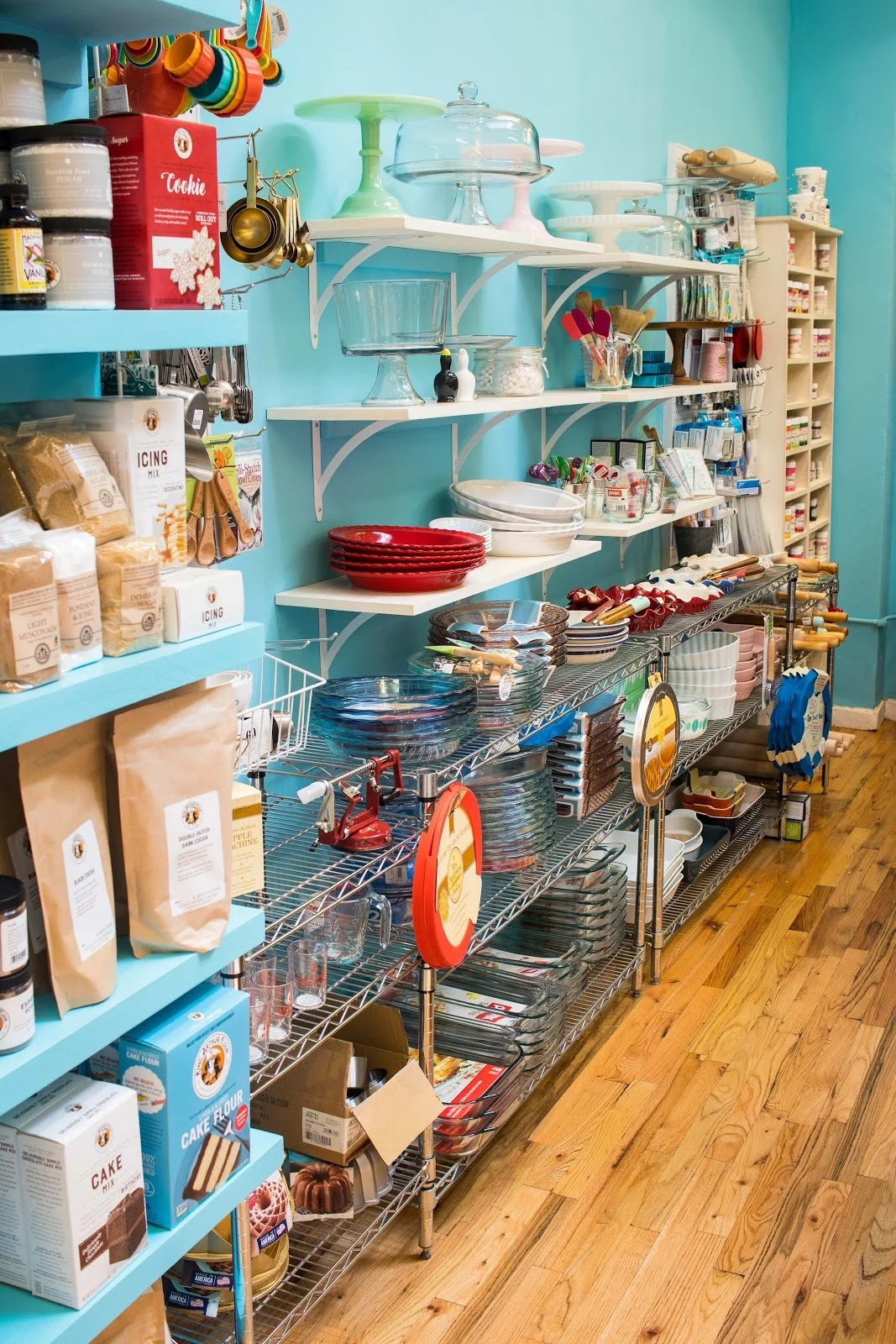Amazon vs. N.Y.’s small businesses: The little guys need a 21st century antitrust act
Natasha Amott, member of Small Business Rising and owner of Whisk, a kitchen store in Brooklyn, wrote the following op-ed in the New York Daily News. Amott calls on New York state legislators to support the 21st Century Antitrust Act, which would strengthen the state’s antimonopoly enforcement and help create a level playing field for small businesses.
As a small business owner in Brooklyn, I first came to understand what predatory pricing really meant in 2014. That was when customers started walking into my kitchenware shop and asking my staff and me why prices for select items, mostly KitchenAid electrics, were higher than those advertised on Amazon. What I wanted to tell them was that not only was our price following the minimum advertised price set by KitchenAid — prices that netted us only a small margin — but that Amazon’s retail prices were often below the wholesale cost itself.
Amazon’s losses were intended to capture greater market share — and it has worked. Between 2000 and 2015, the U.S. lost 108,000 independent retailers. I have seen five prominent kitchen stores go under in New York City in the last decade and only two new ones come on board in the same timeframe. Meanwhile, Amazon’s share of e-commerce continues to grow, as the House of Representatives found that the company quite possibly captures about 50% of online spending in the U.S. In the first three quarters of 2021, Amazon recorded sales of $332 billion, a net profit growth of 35% over the same period in 2020.
This is growth that squeezes from small business profits. In a 2019 survey by the Institute for Local Self-Reliance, three-quarters of independent retailers ranked Amazon’s dominance as a major threat to their survival, and only 11% of those selling on Amazon described their experience as successful. Indeed, for every $100 a seller earns on Amazon today, they give back $34 in fees to the corporation.
While Wall Street largesse funded Amazon’s early retail losses year after year, our federal rules to identify monopolistic behaviors and enforce violations have been shamelessly weak. In the late 19th century, the first antitrust legislation was introduced to ensure that new opportunities associated with manufacturing changes didn’t destroy competition. In the current climate, technology has created tremendous opportunities for small entrepreneurs, but federal officials have allowed Amazon and other tech giants to gain incredible dominance over online markets.
Furthermore, the antitrust lens — and therefore the tactics chosen for antitrust enforcement — is antiquated: For decades, it has been centered on whether or not there is harm to the consumer. In the case of Amazon, when predatory pricing appears to benefit consumers in the short term, no harm is perceived to have occurred.
It doesn’t take much to understand that we are not just consumers. We are traders; we are builders; we are creators; we are employees. We are also people who need to earn a decent living, who want to create products and businesses, who want to live in vibrant communities. As Amazon uses predatory loss-leading and other anti-competitive tactics to grab market share, it is undermining our well-being in all of these ways.
When monopolies like Amazon are allowed to dominate single marketplaces so fully, small businesses see the effect in what they can afford to pay their staff; in what rents they can afford to pay to property owners; and in how they fight to stay a part of the American middle class.
Currently, there are real attempts happening at the federal level to spur antitrust reform, but in order to see change sooner, states desperately need to set and update their own antitrust legislation.
Here in New York State, we have just that opportunity if legislators act now. Led by the New Yorkers for a Fair Economy coalition and sponsored by state Sen. Mike Gianaris and Assemblyman Jeffrey Dinowitz, the 21st Century Antitrust Act would simplify and strengthen New York’s antimonopoly laws, and help small business owners in several ways. The legislation would protect independent businesses from the predatory behavior of dominant companies by asking the attorney general to establish new, clear rules prohibiting abusive and anti-competitive tactics. It would also allow consumers and small business owners harmed by anticompetitive conduct to file class-action lawsuits. Finally, the legislation would change the definition of collusion. Where current law only deals with collusion between two or more companies, this bill would address unilateral conduct by a single firm. This is New York’s chance to be a leading example for other states and show that it truly stands behind small businesses.
During this horrific pandemic, Amazon has been on a warehouse leasing spree, adding 1.6 million more square feet to its existing New York City footprint. Two of those fulfillment centers are less than two miles from my Brooklyn business. If legislators choose to ignore what is happening on their doorsteps, the future costs to undo the harm will be enormous. If state legislators, who endlessly sing the praises of small businesses, truly care about protecting independent entrepreneurs and small businesses, they need to act now.
Amott is a member of the Small Business Rising coalition and the owner of Whisk, a small business in Brooklyn, NY.

